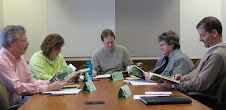
Americans use 30% of the world's oil supply yet only 2% of that comes from our own soil. By embracing renewable energy, we can significantly reduce our dependency on foreign oil.
Our 'ecological footprint' is the measurement of what we consume and the 'footprint' it leaves on the earth. A person who drives 50 miles to work everyday and eats at fast food restaurants 5 times a week has a larger ecological footprint than a person who takes the bus to work and cooks vegetarian meals at home. If all of us lived like the first person in our example, we would need roughly 7 Earths to support us sustainably, or forever. So, let's take an honest look at our level of consumption: Americans make up only 4% of the World's population yet we consume nearly 26% of its resources. Americans spend more annually on the purchase of garbage bags than the combined GDP of 90 of the World's developing nations.
Begin thinking of ways to reduce what you consume: bring canvas bags to the grocery store, buy yourself a travel mug and bring it with you to the coffee shop. Eat one less meat meal per week and buy local food whenever possible. If just ten percent of us where to take these simple steps we would make a substantial difference.
For more information check out www.campaignearth.org
 ed to power older-generation light bulbs. These incandescent bulbs use 4 times more energy than necessary to produce the light for your homes and businesses. Little changes spread across large numbers can really make an impact. Go ahead, change a light bulb. This one simple action can really make a big difference.
ed to power older-generation light bulbs. These incandescent bulbs use 4 times more energy than necessary to produce the light for your homes and businesses. Little changes spread across large numbers can really make an impact. Go ahead, change a light bulb. This one simple action can really make a big difference. 
















